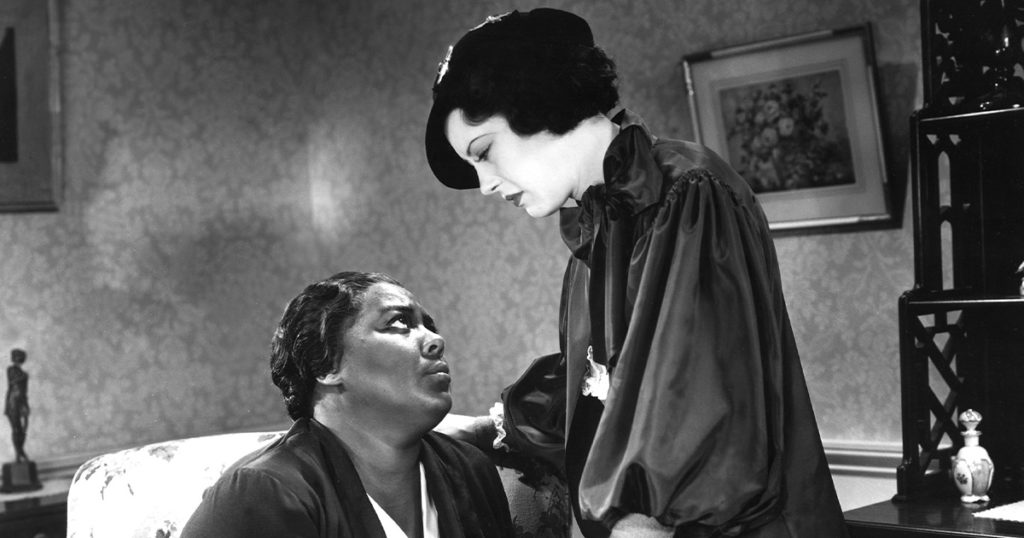
Emily Bernard, a Scholar contributing editor, is an essayist and the author of three books, most recently Black Is the Body: Stories from My Grandmother’s Time, My Mother’s Time, and Mine, and editor of two others. Her essays have been reprinted in The Best American Essays and The Best Creative Nonfiction. This excerpt comes from her upcoming book, Unfinished Women: Eight Lives, in which she explores how, over the years, Black women have succeeded despite the numerous obstacles they have faced.
Thirty years ago, I saw Fredi Washington perform in the 1934 version of Imitation of Life, directed by John Stahl. I was a graduate student, and the purpose of the assignment was to get us thinking broadly about cinematic representations of Blackness and, specifically, the politics of racial passing. The theoretical discussions went in one ear and out the other as I sat transfixed by Washington’s performance.
The movie is fueled by two parallel narratives: Bea Pullman (played by Claudette Colbert) is a widow and a wildly successful businesswoman. Her business is “Aunt” Delilah (played by Louise Beavers), whose unique pancake recipe is the source of Bea’s wealth and fame. Both women have daughters who long to break free of their mothers’ control. Bea’s daughter Jessie wants to drop out of college and pursue romance, while Delilah’s daughter Peola (played by the gray-eyed, ivory-skinned Washington) wants to pass for white. Of the four main characters, Washington has less to do than anyone, but she puts her entire self into her relatively few lines. She shimmers from the screen, every feature in her face dedicated to the articulation of ripe, desperate longing.
It was my mother, born four years after Imitation of Life was released in theaters, who introduced me to the complex and fascinating public reaction to Washington’s performance, particularly among Black people. Washington was ultimately compelled to launch a massive campaign to refute rumors that she was as dissatisfied with her Blackness as the character she played. Too white-looking to play Black, and too Black to snag the leading roles for which she was obviously suited, Washington ultimately retired from the stage and screen to become a Hollywood watchdog with a weekly column devoted to the problem of racial representation in the performing arts.

